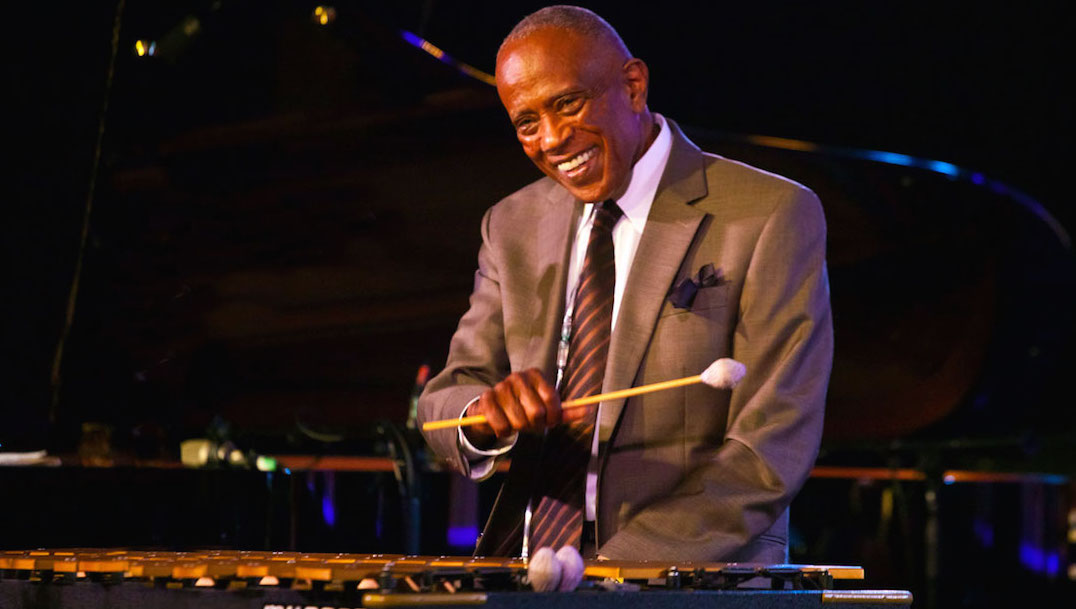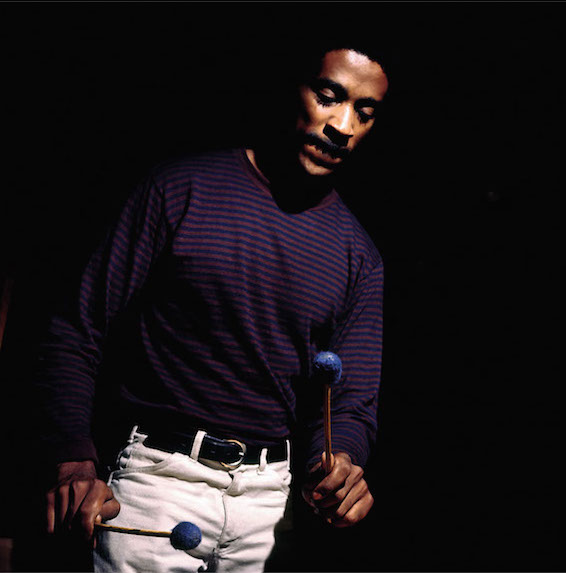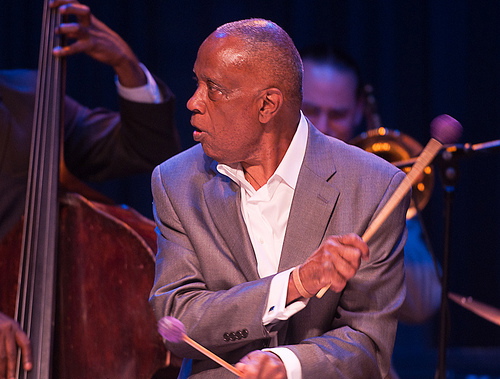

Easily one of jazz’s greatest vibraphonists, Hutcherson helped modernize his instrument by redefining what could be done with it – sonically, technically, melodically, and emotionally. In the process, he became one of the defining voices in the so-called “new thing” portion of Blue Note’s glorious ’60s roster. Hutcherson gradually moved into a more mainstream, modal post-bop style that, if not as adventurous as his early work, still maintained his reputation as one of the most advanced masters of his instrument.
Attracted foremost to more experimental free jazz and post-bop, Hutcherson, inspired by the style began recording on the Blue Note label with Jackie McLean, Eric Dolphy, Andrew Hill, Grachan Moncur III, Joe Chambers, and Freddie Hubbard, both as a leader and a sideman. In spite of the numerous avant-garde recordings made during this period however, Hutcherson’s first session for Blue Note, The Kicker (1963) (not released until 1999), demonstrates his background in hard bop and the blues, as well as the early session Idle Moments for Grant Green.
In addition to his own recordings and tours, Hutcherson also appears on other artists’ records, including Tyner’s Manhattan Moods (1993) and Hammond B-3 organist Joey DeFrancesco’s Organic Vibes (2006). Hutcherson continues to perform at a masterful level on his instrument, playing with both his contemporaries and the new generation of jazz musicians.
Hutcherson’s work remains entirely compelling. He brings something special every time he plays. In recent years, it’s especially noticeable on his recordings as a sideman. If he doesn’t play on a particular track, you miss him. When he does play, everyone sounds better.
Bobby had (and still has) a work ethic, a brilliant mind, a profound, non-ritualistic spirituality, an innate wisdom and warmth that made for the ingredients of an outstanding jazz artist as well as a hell of a human being.
“Bobby Hutcherson’s sound and innovative style on the vibraphone helped revitalize the instrument in the 1960s, adding an adventurous new voice to the free jazz and post-bop eras,” said the National Endowment for the Arts, which honored him with its prestigious Jazz Master award in 2010.
“Bobby Hutcherson can move easily across a vocabulary of such breadth that it would neutralize the identity of a less talented player.” —Stanley Crouch


